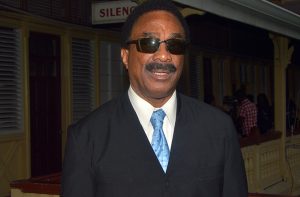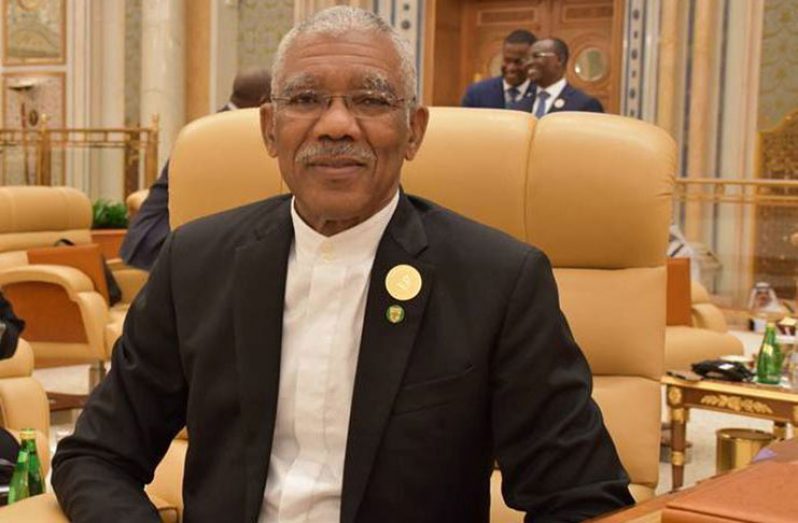— gov’t maintains three -month timeline directory not mandatory
THIS week, the Court of Appeal is likely to deliver its ruling on the validity of the No-Confidence Motion brought against the Government. It can either overturn or uphold the motion.
If the panel of judges led by the Chancellor of the Judiciary, Yonette Cummings-Edwards, upholds the January 31, 2019 decision of the High Court that the No-Confidence Motion was validly passed in the National Assembly as declared by the Speaker, Dr. Barton Scotland, the Appellate Court has the power to extend the timeframe for the holding of General and Regional Elections in the absence of an extension by a two-third majority of all elected members of the National Assembly.
The three-month timeframe, as stipulated by Article 106 (7) of the Constitution, expires on Thursday, March 21, 2019, but there would be no constitutional crisis. In the Appellate Court this past week, the Attorney General, Basil Williams and a battery of lawyers, in a series of convincing arguments, submitted that the three-month provision in the Constitution, which provides for early elections, following a vote of No-Confidence, is not mandatory but rather directory.

The attorney general has argued that the Article 106(7) can only be interpreted as directory since the government has no control over elections. Under the current construct of the Constitution, only GECOM can hold and supervise the conduct of elections independently.
As it is currently, the Elections Commission is not in a state of readiness to hold elections and has long indicated that it is unable to reach the three-month deadline due to a number of factors, including lack of technical expertise and financial resources.
Related stories:
–Opposition did not secure absolute majority
–Constitution does not provide for immediate resignation of Cabinet-AG
Warning that if interpreted in isolation of other provisions of the Constitution, Article 106 (7) could lead to an absurdity, Williams, in defense of his position, turned the Court’s attention to Article 62, Article 161 (A) and (B) and Article 162 which insulate GECOM from political interference and outline its core functions and responsibility.
“What happened in the Court below was that Article 106 (7) was looked at separately and in isolation of the other provisions of the Constitution…Your honours when you read Article 106 (7) in isolation, what do you find? We find that the Government is given a task, that one could say is a task equivalent to Sisyphus, impossible of performance because of course the government cannot hold an election, it is an absurdity,” he told the court.
READINESS FOR ELECTIONS
Attorney-at-Law Maxwell Edwards, who appeared in association with the attorney general, in his submissions, made it clear that only GECOM can determine when elections can be conducted, having regard to its state of readiness.
In the defense of government’s position, Edwards pointed to the case of Attorney General of Grenada v. The Grenada Bar Association [2000] in which Chief Justice Byron, as he then was, underscored the principle of looking at other provisions of the Constitution in order to glean what the framers of the Constitution intended.
“A purposive interpretation must be given to Article 106(7) to read that the President and the government continue in office and resign when a President is sworn in after an election,” he argued.
He said, in law, it is important for the Constitution to be interpreted as a whole, and failure to do such could result in error.
“Interpreting a section or part of a Constitution in isolation will likely result in the court not appreciating the impact that its interpretation may have in real life,” Edwards argued.
One of the country’s leading legal minds has said that the court, in keeping with the doctrine of necessity, has the powers to grant an extension to the constitutional deadline.
According to him, “like it or not, the court is in the driving seat” and will determine the way forward since it has the powers to do so.
“The court will determine what happens if the time runs out or is about to run out. It will make that determination. No other organ in the state is capable of so doing… the court is the organ, the institution responsible for making that kind of determination,” he explained.
Given the circumstances, the legal luminary said the court could depend on the doctrine of necessity, and grant an extension.
“If it so happens that the court is in the process of resolving an issue or enquiring into an issue, and the time stipulated in the Constitution has been overshot, then the court could rely on the doctrine of necessity and give such extensions as are required in the circumstances,” he further explained.
President David Granger said he will be guided by the Court of Appeal and GECOM, in his latest address to the nation.
“I rely on the Commission’s readiness, the provision of funds and the expansion of time to conduct credible elections by the National Assembly. I rely on the outcome of legal challenges by the Court of Appeal. I rely, also, on public confidence in the institutions responsible for executing these processes. They demand political cooperation, not confrontation,” the President said on Friday.
Currently, the President is awaiting advice from GECOM but frequent walk-outs by the three Opposition-appointed commissioners are stymieing the work of the Commission.
CONTINUITY OF GOVERNMENT
In putting the current political situation into perspective during the televised address to the nation, President Granger explained that the competence of the executive branch is essential to the viability of the state.
Alluding to Article 106 (7) of the Constitution, he said the President and Ministers remain in office as provided for by the Constitution. According to that Article, “Notwithstanding its defeat, the government shall remain in office and shall hold an election within three months, or such longer period as the National Assembly shall by resolution supported by not less than two-thirds of the votes of all the elected members of the National Assembly determine, and shall resign after the President takes the oath of office following the election.”
He emphasised that the Constitution contemplates continuity of the government.
“There is no legal impediment that restrains the government from exercising its functions or requires it to assume only ‘caretaker’ functions. The government continues to protect the country’s borders, natural resources, sovereignty and territorial integrity and to fulfil its international obligations. Citizens will continue to be provided with public services at the central, regional and local levels to ensure their welfare. Life goes on,” the head of states asserted.
President Granger noted that the Constitution of the Cooperative Republic of Guyana is sacrosanct and supreme; the independence of the Judiciary and the Elections Commission is respected and the National Assembly is functional.




.png)









